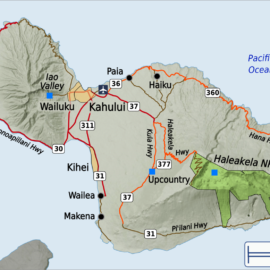
Tulane got a grant to create an environmental justice course for K-12 students.
A group of Tulane University professors, environmental advocates and educators are teaming up to design an environmental justice curriculum for the state’s K-12 students, made possible by a $1.2 million grant. The project, which will draw from the archives kept by the Louisiana Environmental Action Network, a nonprofit Baton-Rouge based organization, will be free and available for teachers across the world. Earlier this year, the National Academies of Sciences, Engineering, and Medicine‘s Gulf Research Program distributed $8.6 million to 11 new projects, including the new curriculum project.
nola.com

(Photo by Rusty Costanza, Tulane University)
The Louisiana Environmental Justice Network has been active in creating videos and personal narratives which will provide some material for the project.
The Louisiana Environmental Action Network has for decades worked with community groups, compiling hours of videos, oral histories and news articles that tell the story of environmental justice in Louisiana and across the world, said Michael Orr, communications director for LEAN and project director for the environmental justice curriculum. “This is a really exciting opportunity to take all the things that we’ve been using to inform our work and translate it for a younger audience so that they have the context that they need to hopefully prevent a lot of the problems,” Orr said. Though the specifics of the curriculum have yet to be developed, the groups have met with teachers to discuss possibilities. It will likely include an educational video game component, he said. “This is really synthesizing all the histories and lessons and tools of environmental justice history into a sort of self guided empowerment tool for anybody,” he said. “There’s a real lack of historical understanding and context about the struggles that Louisiana has been on the forefront of … we’re not teaching it like we should be.” Christopher Oliver, senior professor of practice in Sociology and Environmental Studies at Tulane, said in a news release that the project would prioritize the viewpoint of those communities that LEAN has been working with for decades. “These communities need to have their voices heard and deserve the broader recognition of the damaging consequences of the environmental injustices perpetrated upon these communities – this living, publicly available record of the often-numerous negative impacts on their livelihoods and lives,” Oliver said.
This is not Tulane’s first entry into curriculum building.
Rebecca Snedeker, director of New Orleans Center for the Gulf South, part of Tulane’s Liberal Arts College, pointed to past curriculum initiatives out of Tulane, including Music Rising, which examined the history of music and culture to the civil rights music in the south and the Indigenous Symposium. “Our hope is by sharing the stories of those who have been on the frontlines that we help empower young people to develop a critical analysis of their surroundings, animate their sense of political agency and creatively engage our dynamic climate future,” she said. In addition to the environmental justice curriculum project, the organization awarded $1.1 million to another group headed by Joshua Lewis, a research associate professor and research director at the Tulane ByWater Institute. That team will build an in-school curriculum that centers on “locally relevant water issues that disproportionately impact Black and Indigenous residents of the Mississippi-Atchafalaya River Basin region.”
This will fit into a STEM program as science is involved and engineering will be used to make solutions.



